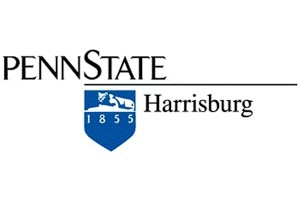Summer course in the US
 This week’s blog is an interview on Homeland security summer course with Professor Alexander Siedschlag, from the Penn State Harrisburg Campus.
This week’s blog is an interview on Homeland security summer course with Professor Alexander Siedschlag, from the Penn State Harrisburg Campus.
Hi Alexander, and thanks for agreeing to this CBRA blog interview. Can you please tell little bit about yourself, including your background and what you do today?
Thank you for the opportunity, Juha! Well, after leaving the German Air Force, I went to the University of Munich and obtained Master’s and Doctoral Degrees in Political Science, Sociology and Psychology. I then went to Free University Berlin as a Postdoc and on to Humboldt University Berlin for my habilitation (venia legendi). I also worked in real-world policy analysis during that time, at the Stiftung Wissenschaft und Politik (SWP) and as a NATO Research Fellow. My original areas of specialization were security studies (strategic studies) and theories and methods of international politics. I also did some work in comparative political science, technology assessment and digital democracy studies. I however have focused on civil security research and security cultures since ten years or so. I created the institute for security research at Sigmund Freud University Vienna/Austria, supported by a federal grant, and served as its founding director. The institute included the CEUSS | Center for European Security Studies. Today, I am Chair of The Pennsylvania State University’s Homeland Security Programs and Full Professor of Homeland Security.
We first met around 2008 in Austria in the ECSI-conference, if I recall correctly. Can you please explain what ECSI was all about, and whether it still continues?
ESCI was the European Security Conference Initiative that I established along with the CEUSS | Center for European Security Studies back in 2004, when I was Endowed Chair of European Security Studies at the University of Innsbruck/Austria. ESCI was a conference series aimed at bringing together experts and stakeholders from academia, think tanks, politics, industry, and business from across Europe to explore timely questions of European security across the internal-external and the civil-military continuum. ESCI in particular contributed to bridging the gap between strategic studies and civil security research and showed that it is possible and meaningful to combine civil security research with defense-related research and social sciences and humanities research with technology research. That was quite a daring undertaking then years ago. Since the Lisbon Treaty, the defense dimension can be addressed within security research, and thinking along security continua such as internal-external has become common in policy and research, so that ESCI has fulfilled its mission. After ten years, thus, the conclusion was that ESCI has had its time, made a difference, and its concept should not be overstretched. ESCI thus has been discontinued, but we are missing it and still work with its results and network, such as you guys, and that is a great enduring effect of this so visionary conference platform that has been fortunate to see the vision it served realize! Main ESCI outcomes are documented on http://www.esci.at.
Then from 2011 to 2013 we collaborated in the European Framework Program 7 project FOCUS, where you were the coordinator. What was that project about and what where the main outcomes of it?
It was a fantastic experience to work together with all of you in that path-breaking project! FOCUS was a European Union co-funded scenario foresight project, bringing together thirteen partners from eight countries. FOCUS developed scenarios and tools to help shape European security research to enable the EU to effectively respond to tomorrow’s challenges stemming from the globalization of risks, threats and vulnerabilities. The project concentrated on alternative future EU roles to prevent or respond to incidents situated on the “borderline” between the internal and external dimensions of the security affecting the Union and its citizens. It did so by elaborating multiple scenarios, based on IT-supported foresight, in the form of alternative futures. In the form of a security research planning roadmap underpinned by scenario studies, scenario information wikis, scenario information management tools, and a glossary, FOCUS developed a long-term foresight and assessment instrument, populated with the analyses carried out by the project. This instrument consists in an interconnected array of products, grouped around an IT-based Knowledge Platform developed within the project. Those project deliverables that are for public dissemination are accessible via http://www.focusproject.eu.
You are organizing the second Homeland Security -summer course at your University, during August 3-7, 2015. Can you please explain about the course?
Penn State Homeland Security Programs are mainly taught online across the world, but we also have some residential offerings for those who seek continuing education in the field. This includes an annual summer short course on Penn State Harrisburg Campus, located two hours from Washington, DC and two hours from New York. Based on an all-hazards approach, this intensive short course has a modular structure with lectures and micro-seminars given by Penn State faculty and guest lecturers (one of whom will be you this year!), including those from the U.S. Homeland Security Enterprise and international experts. The course also comprises an excursion, interactive syndicate group work, and networking receptions.
This year’s course topics for example include intelligence for homeland security; critical infrastructure vulnerability and risk assessment; process control for cybersecurity; public health preparedness: trends and future implications; security research in Europe and transatlantic collaboration; good practices in crime prevention and security management in global supply chains; comparative homeland security; etc.
Sounds very interesting! If any of the CBRA blog readers would like to join the course, whom should they contact?
Information is available online http://harrisburg.psu.edu/courses/homeland-security-update-research-and-trends and participants may also register online via this website.
Thanks a lot Alexander for this interview – and see you in Harrisburg in 2 months time!
Thank you, and looking forward to seeing you over here in August.


